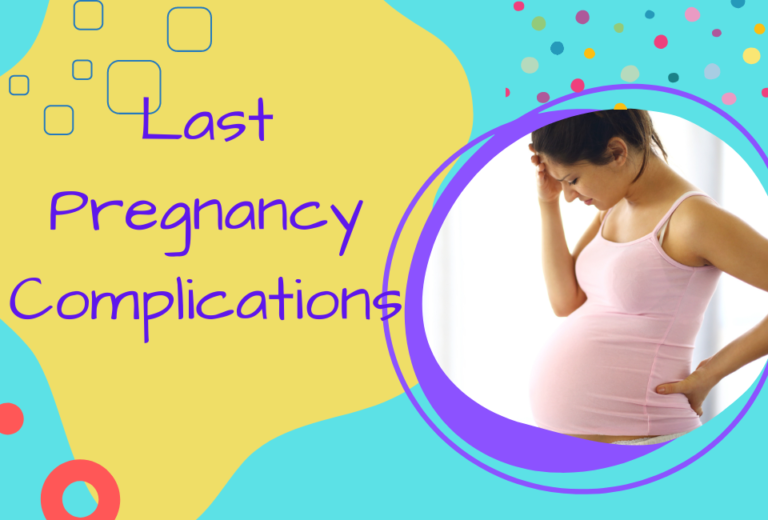6 Things you should know before Planning Pregnancy

Introduction
Hi friends, welcome to Go Life Beautiful, today we’re going to talk about six things you should know before trying for a baby, if you haven’t already let’s talked about what preconception health? Why it’s important? And why you should make the effort to achieve a healthy body and mind before becoming pregnant? So just a quick reminder.
The idea behind preconception health is that a couple that’s healthy at the time of the coming pregnant. It’s more likely to have a safer pregnancy and a healthy child. There are several things you can do for good preconception health and here we’ll be talking about some of them and with that let’s get started.
Number one: ‘Folic Acid’

The first important thing that you must learn before planning pregnancy is ‘Folic Acid’. Now I’m not going to too much detail right now because the this content (folic acid) is going to be on nutrition supplements but the main point I like to make is that as soon as you can start taking a vitamin called folic acid or women of reproductive age advice to consume 0.4 milligrams intake of folic acid on daily basis will help in preventing the risk of serious birth defects. Most doctors suggest this to all women planning for pregnancy, and they choose to meet this requirement by taking a daily tablet of folic acid and ideally it would be beneficial for women to take folic acid for at least three months before they plan to become pregnant.
Number Two: Try to stop drinking smoking and cut your caffeine intake
Try to stop drinking smoking and cut your caffeine intake when you are serious about pregnancy. It’s common knowledge to avoid alcohol once you are pregnant but there are many benefits in stopping drinking before planning it. Also as you might not aware you’re pregnant until several weeks pass. In addition these factors can also affect your ability to become pregnant and like with alcohol it’s unclear how much is needed to have a negative effect. Thus it is recommended by all doctors to stop drinking alcohol completely if possible and reduce the caffeine intake to minimum say, to a quantity of about 200 milligrams per day which is approximately one medium-sized cup of coffee. Stopping drinking or smoking can be harder for someone, so don’t get disheartened if you’re finding it tough. And please know that your family members and doctor is there to help you without judgment. You can also take help of local support groups or join program for adoptions.



Number Three: Talk to your family doctor

Talk to your family doctor (GP) about any antidepressants whatever let’s see medications at you are on if you have epilepsy. It is advised to see a specialist to consult about the different options available for you to overcome from this. This is especially important if you’re on your drug court, so youth are Pro eight which is a mister medication for epilepsy but also bipolar disorder. There are factors like ‘type’ and ‘dose’ which can severely affect the risk of complications. The major risk of complications is in brain development, if you are on any of such medications. We recommend you see a doctor before you’re pregnant to minimize any anxiety surrounding changing medications later on but I cannot stress the importance of this next point, please consult your doctor before you stop taking your current medicines.
Number Four: Past Medical History
Talk to your family doctor (GP) about any pre-existing medical conditions you had during your previous pregnancy and whether you had any complications. This is important as few medical conditions and medicines may affect your pregnancy opportunity and put it in risk. Diabetes for example should be well controlled to minimize the risk of complications to you and for your baby. You can also talk about any medications that you want and if anything needs to be changed for example, if you’re on say ‘Metformin’ for your diabetes. ‘Metformin’ is considered to be safe during pregnancy, but there may be some other medicines which need to be addressed for their effect on your pregnancy. It’s also very important to discuss any previous pregnancies you’ve had and if you’d experienced any complications to ensure that you get personalized care before and during your pregnancy to avoid the avoidable risks or complications.


Number Five: Vaccinations
Check that your vaccinations are up-to-date. Vaccines protect you from infections and sour infections can put your baby at risk. You can always talk to your doctor about vaccination. He will better advise you on what vaccines you might need. For example, you shall take the MMR vaccine which will protect you against measles, mumps and rubella. Or if there is no record available, getting vaccinated can be easily arranged and if you do get vaccinated you should rate of our mind before trying to get pregnant.
Don’t miss the exclusive
Frequently Asked Questions section at the bottom.

Number Six: preconception health of Both the Parents


The last point I’d like to make is very important before planning pregnancy. The preconception health is not only important for the mother but for the biological father also. Which is actually quite nice because you might be really motivated to keep up with the healthy lifestyle if you know you’re not in it alone. Habit of smoking, heavy drinking, taking recreational drugs and more such habits affect the besting sperm count and quality. So if you didn’t have the motivation to stop habits like these before this might be the motivation you need and this is important because by improvements your sperm count quality. This way you can enhance your chances of becoming pregnant risk of developmental complications can also be minimized. So when should you start making these lifestyle changes? Well since it takes about 72 days for sperm to develop and mature, it’s good for lifestyle changes to take place well in the advice ideally at least two months before trying for a baby.
Summary
So in summary here’s what we recommend: 6 Things you should know before planning pregnancy.
- Start taking folic acid daily before planning a baby.
- Try to stop drinking smoking and cut down your caffeine intake
- Talk to your Doctor about your medical health and current medication
- Talk to your Doctor about any pre-existing medical conditions or previous pregnancy complications
- Check that you’re up to date on your rap sedation’s and
- The lifestyle of the biological father also matters to a great extent.
Hope, this information was useful for you. Do consider to share this valuable information with family and friends who are planning pregnancy in order to spread healthy lifestyle and love. Take Care and Stay Blessed.
Frequently Asked Questions (FAQs)
What are the key factors to consider when planning pregnancy?
When planning pregnancy, important factors to consider include optimizing your health, managing chronic conditions, tracking menstrual cycles, ensuring proper nutrition, and taking prenatal vitamins.
How can I improve my fertility before trying to conceive?
Enhance your fertility by maintaining a healthy weight, avoiding smoking and excessive alcohol consumption, managing stress levels, engaging in regular exercise, and discussing any concerns with a healthcare provider.
What role does nutrition play in preparing for pregnancy?
Proper nutrition is vital for fertility and a healthy pregnancy. Focus on consuming a balanced diet rich in fruits, vegetables, whole grains, lean proteins, and healthy fats, while minimizing processed foods and increasing your intake of folic acid.
Are there any lifestyle changes I should make before planning pregnancy?
Yes, it’s advisable to make positive lifestyle changes such as quitting smoking, limiting caffeine intake, avoiding exposure to harmful chemicals, and discussing medication usage with a healthcare provider to ensure a healthy environment for conception.
Should I be concerned about any pre-existing medical conditions when planning pregnancy?
Pre-existing medical conditions can impact fertility and pregnancy. It’s important to consult with a healthcare provider to manage chronic conditions like diabetes, hypertension, or thyroid disorders before trying to conceive.
How can I track my menstrual cycles to determine the most fertile days?
Monitoring your menstrual cycles and tracking ovulation can help identify the most fertile days. Tools such as fertility tracking apps, ovulation predictor kits, and monitoring basal body temperature can assist in determining optimal timing for conception.
What are the benefits of preconception check-ups?
Preconception check-ups provide an opportunity to address any concerns, assess overall health, review medical history, receive vaccinations, and discuss prenatal supplements with a healthcare provider, ensuring a healthy start to pregnancy.
Are there any risks associated with age and pregnancy?
Advanced maternal age can increase the risk of complications. Women above the age of 35 should consult with a healthcare provider to understand potential risks and consider genetic counseling or additional prenatal screenings.
How long does it typically take to conceive once you start trying?
Conception time varies for each couple, but it’s common for it to take several months. Generally, if you have been trying for a year without success (or six months if you’re over 35), it’s advisable to seek guidance from a healthcare provider.
What are the important prenatal vitamins to take before getting pregnant?
Taking prenatal vitamins that contain folic acid is crucial before and during early pregnancy as it helps prevent neural tube defects. Additionally, these vitamins often contain iron, calcium, and other essential nutrients needed for a healthy pregnancy.
Are there any vaccinations recommended before planning pregnancy?
Yes, certain vaccinations are recommended before pregnancy to protect both the mother and baby. Discuss with your healthcare provider about vaccines such as rubella, varicella, influenza, and pertussis (Tdap) to ensure adequate immunization.
How does the health of both parents affect pregnancy?
The health of both parents is important for a successful pregnancy. Ensuring optimal health through regular check-ups, managing chronic conditions, maintaining a healthy weight, and adopting a balanced lifestyle can contribute to a positive pregnancy experience.
What impact do smoking and drinking habits have on fertility and pregnancy?
Smoking and excessive alcohol consumption can negatively affect fertility in both men and women. They are also associated with increased risks of miscarriage, birth defects, preterm birth, and other complications during pregnancy. It’s crucial to quit smoking and limit alcohol intake before trying to conceive.
How long should I wait after quitting smoking or drinking before trying to conceive?
It’s recommended to wait for a period of time after quitting smoking or drinking before trying to conceive. Consult with your healthcare provider to determine the appropriate waiting period, as it can vary depending on individual circumstances.
Can certain medications or recreational drugs affect fertility or pregnancy?
Yes, certain medications and recreational drugs can impact fertility and pose risks during pregnancy. It’s important to consult with a healthcare provider to evaluate the safety of any medications or substances you are currently using and discuss potential alternatives if necessary.
Disclaimer
Remember to tailor these answers to the specific context and consult with a healthcare professional for personalized advice regarding vaccinations, health conditions, and lifestyle choices before planning pregnancy.

Pregnancy Do's and Don'ts
Bringing a new life into the world is a momentous experience, and taking care of yourself and your growing baby is of utmost importance. In this comprehensive guide, we will delve into the essential do's and don'ts during pregnancy to help you make informed decisions and maintain a safe and healthy pregnancy. From nutrition and exercise to lifestyle choices and medical considerations, this article aims to provide you with valuable advice and guidelines to ensure a smooth and joyful journey to motherhood.
One Response